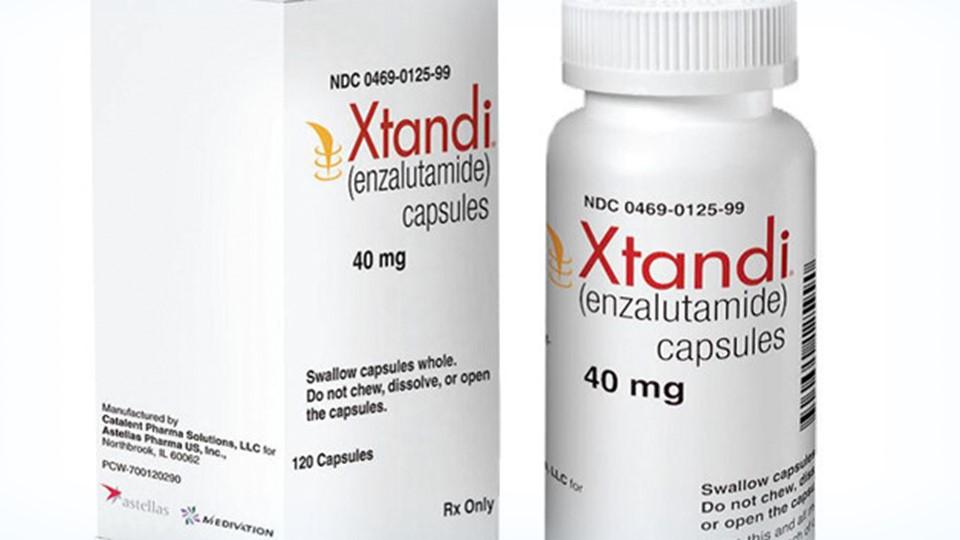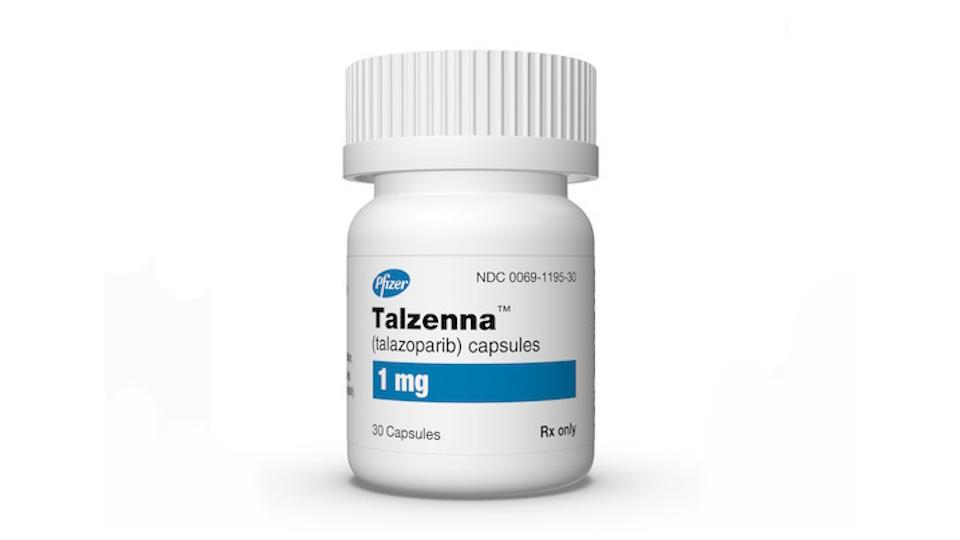Xtandi cleared by FDA for earlier-stage prostate cancer

Already a mainstay of prostate cancer therapy, Pfizer and Astellas’ Xtandi has picked up a new approval in the US that could reinvigorate the drug, even as it approaches its last few years of market exclusivity.
The FDA has cleared Xtandi (enzalutamide) as a treatment for patients with non-metastatic, castration-sensitive prostate cancer (CSPC) with biochemical recurrence and a high risk of metastasis, making it the only drug in the androgen receptor signalling inhibitor class for this indication.
Non-metastatic CSPC refers to tumours that haven’t spread to other parts of the body and respond to conventional hormonal therapies, while biochemical recurrence is defined as a rise in prostate-specific antigen (PSA) levels that can indicate the cancer is returning.
Between 20% and 40% of men who have undergone prostate cancer treatment will experience biochemical recurrence within 10 years, according to Pfizer and Astellas. About nine out of 10 men with high-risk biochemical recurrence will develop metastatic disease, and one in three will die as a result of their metastatic prostate cancer.
The FDA approval is based on the results of the EMBARK study, which found that adding Xtandi to the standard hormonal therapy leuprolide in high-risk non-metastatic CSPC patients reduced the risk of metastasis or death by 58% compared with leuprolide plus placebo, with a trend towards improved overall survival (OS).
Metastasis-free survival (MFS) at five years was almost 84% in the Xtandi/leuprolide arm of the trial, compared to 71% in patients who received leuprolide alone.
Xtandi has been approved for castration-resistant prostate cancer (CRPC) for more than a decade and has also been used since 2019 to treat metastatic CSPC, and made around $5.9 billion from those indications last year.
It is due to lose patent protection in the EU and Japan in 2026 and the US in 2027, however, so the new indication will be something of a final hurrah for the brand as it faces the onset of generic competition.
“For patients who were previously treated for prostate cancer and had achieved remission, only to later receive the distressing news of disease recurrence with a risk of metastasis, the emotional toll can be profound,” commented Courtney Bugler, chief executive of patient organisation ZERO Prostate Cancer.
“This approval of Xtandi is a promising treatment option for the community, offering a ray of hope to patients and their caregivers,” she added.
The new indication is also under review by the EMA and other regulatory authorities around the world, with decisions due later this year or early in 2024.
In June, Xtandi was also approved by the FDA as a combination regimen with Pfizer’s PARP inhibitor Talzenna (talazoparib) for homologous recombination repair (HRR) gene-mutated mCRPC, challenging AstraZeneca/MSD’s market-leading PARP drug Lynparza (olaparib) in these patients.













